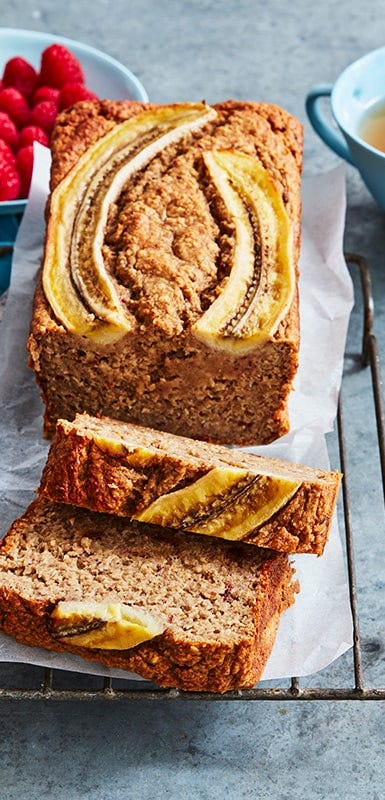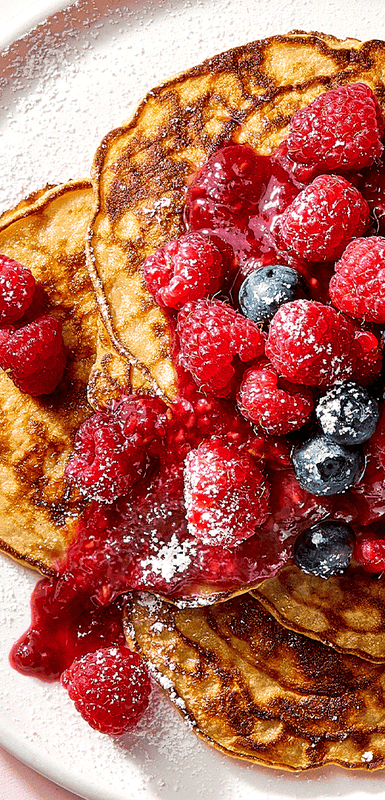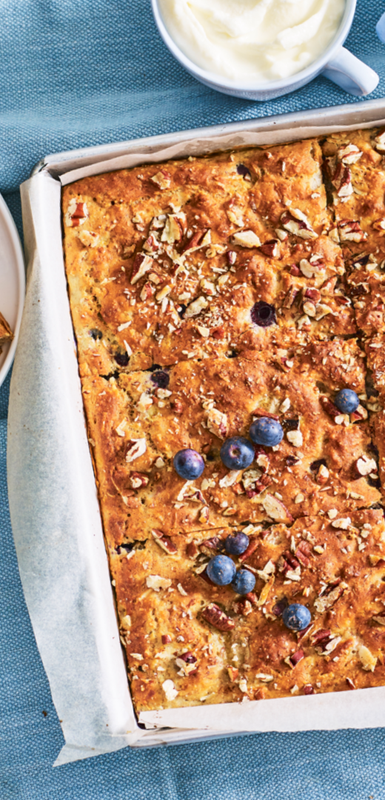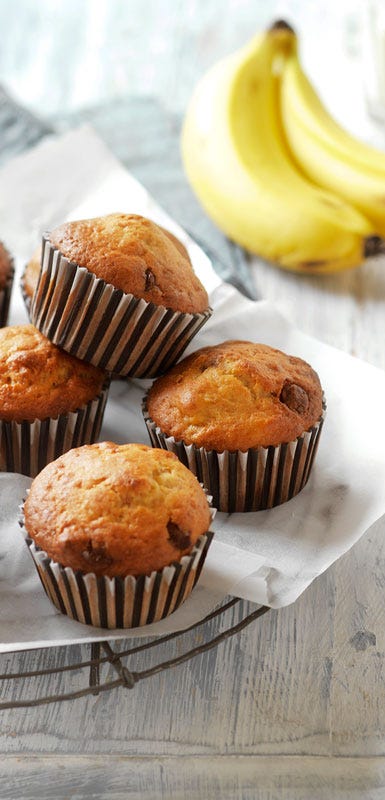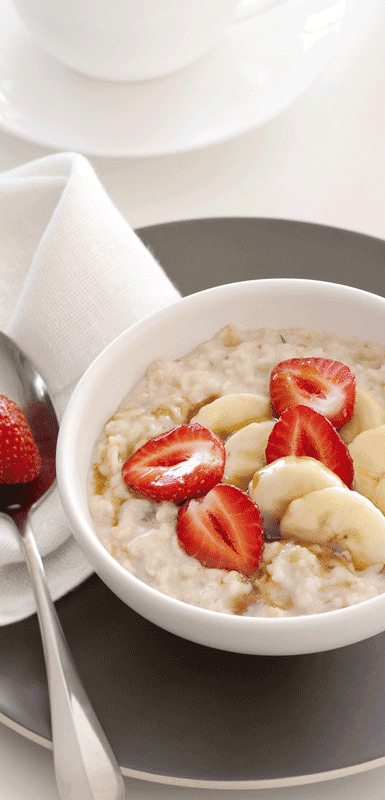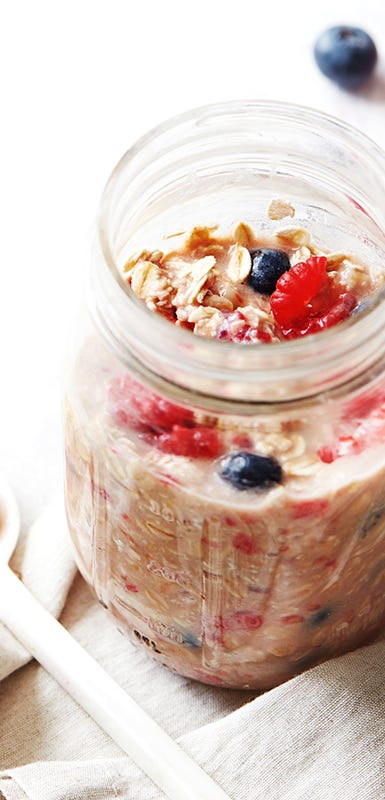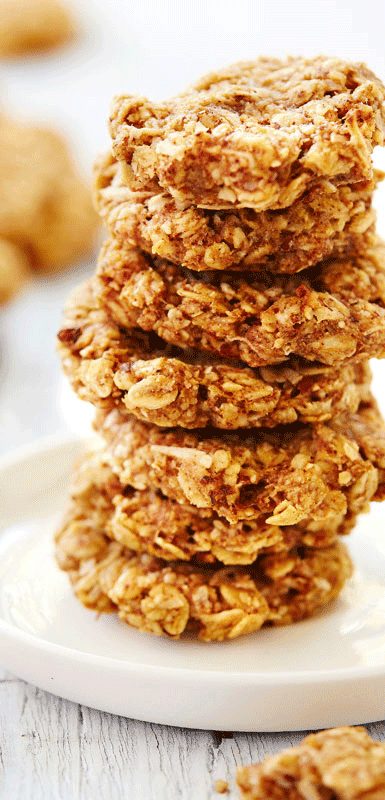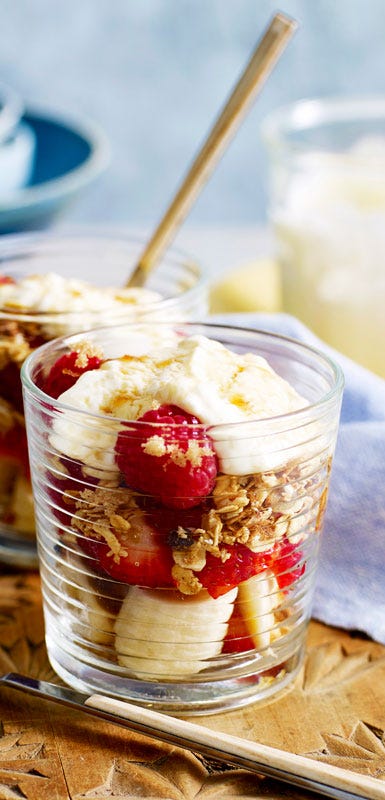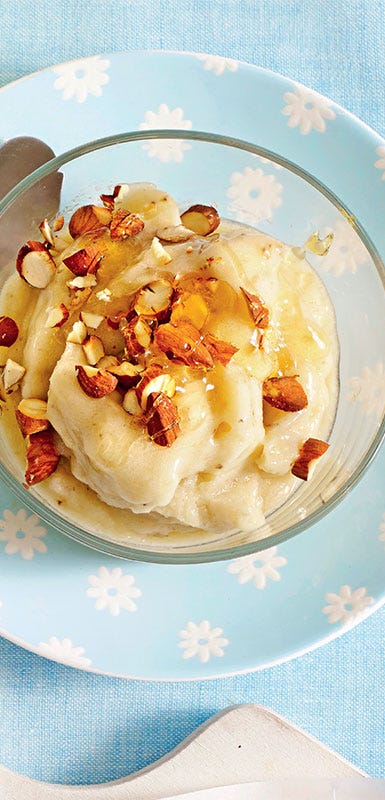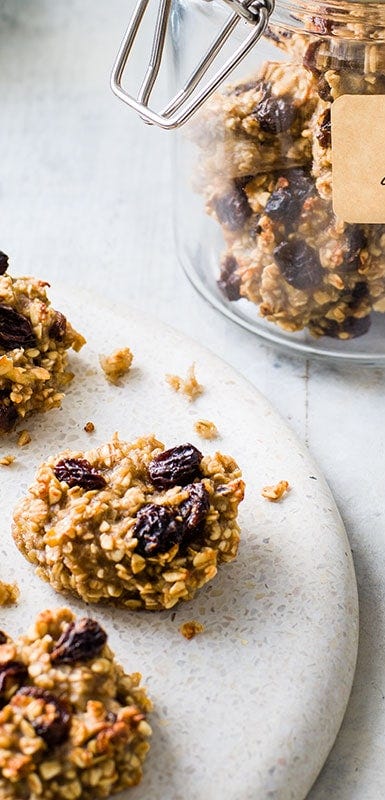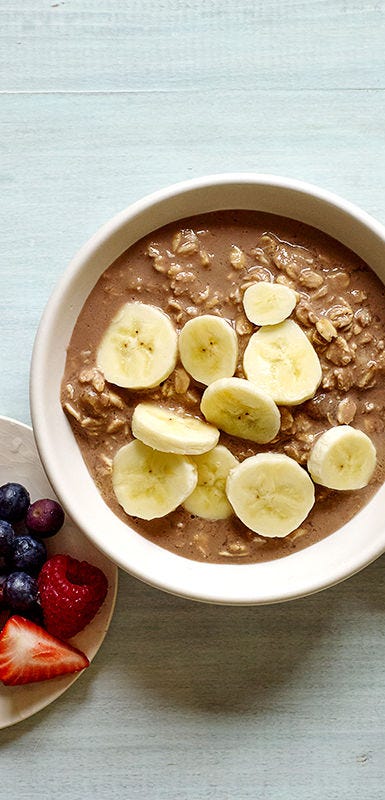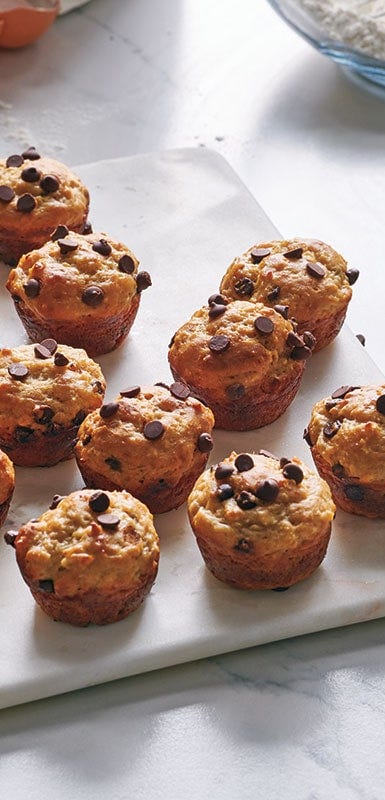Everything you need to know about bananas, according to a dietitian
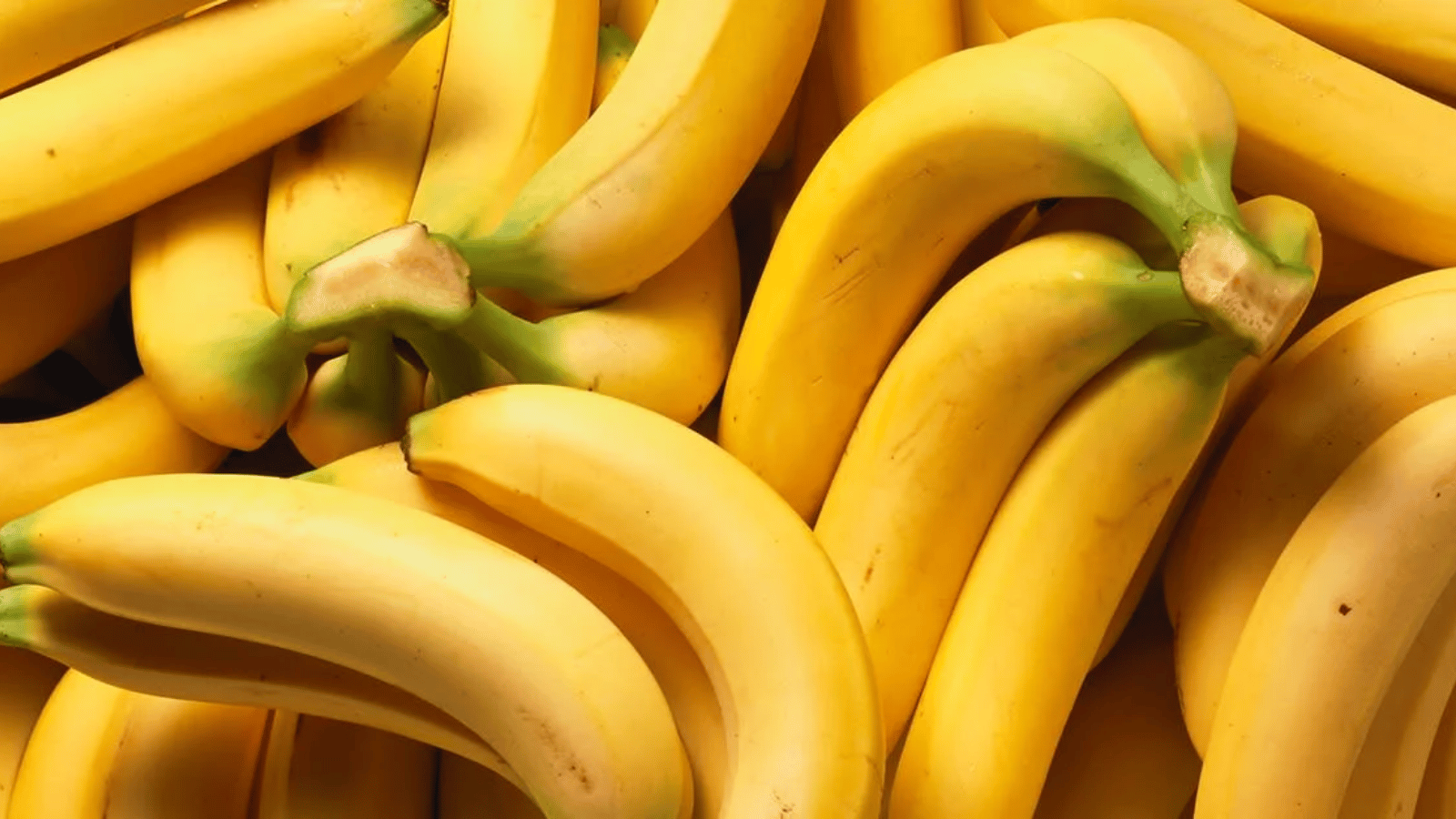

From blending to baking, bananas are one of the most versatile and nutrient-packed fruits. So it’s no surprise they’re also one of WeightWatchers® members’ most tracked foods! You likely know that bananas are good for you, but have you ever wondered why? Our nutrition experts share the science behind bananas and answer your top questions. Here’s the lowdown:
Banana nutrition stats
One medium banana:
| Kilojoules | 386 kJ |
| Carbs | 19.2 g |
| Fibre | 2.2 g |
| Protein | 1.4 g |
| Potassium | 339 mg |
| Vitamin B6 | 0.2 mg |
| Magnesium | 30 mg |
| Vitamin C | 4 mg |
Are bananas good for you?
Bananas are an all-star choice when it comes to adding more nutritious, wholesome foods to your meals and snacks. They’re full of important nutrients like potassium, magnesium, fibre, vitamin B6, and vitamin C. While no single food in isolation of everything else you eat will make or break your overall health, adding more fruits and veggies to your diet is always a good idea. In 2017-18, a little over half of Australians over 18 years were eating their recommended daily fruit intake, while only one in 13 were eating enough vegetables.
What are the health benefits of eating bananas?
Eating more fruit is beneficial for your health in so many ways. Remember, no single food is good or bad, but bananas are certainly a healthy choice. The nutritional profile bananas provide means they may help play a role in keeping your bones healthy, reducing your heart disease risk, supporting blood pressure regulation, and boosting energy and cognition.
> Bone health
In general, dietary patterns that include higher intakes of fruit and vegetables are considered beneficial in supporting healthy bone mineral status. When it comes to bananas specifically, we look to their potassium and magnesium levels. Diets high in potassium may help reduce a person's risk of osteoporosis by supporting bone mineral density. Magnesium is further involved in bone formation, and higher intakes have been shown to improve bone mineral density.
> Heart disease
Similar to bone health, dietary patterns high in fruit and veggies are associated with a decreased risk of heart disease. (You might be sensing a theme here!) Some of the key minerals, nutrients, and antioxidants in bananas, like vitamin C, also have protective qualities that can shield cells from damage.
> Blood pressure
Bananas are a source of both potassium and magnesium, both of which contribute to regulating blood pressure. In fact, the DASH diet (a.k.a. Dietary Approaches to Stop Hypertension) promotes an increased intake of potassium and magnesium. As a component of a healthy pattern of eating, these nutrients are linked to a decreased risk of hypertension. This is even more impactful when you consider that blood pressure is a major modifiable risk factor in the development of stroke, heart disease, and kidney failure.
> Energy and cognition
This fruit is an excellent source of vitamin B6—one medium banana provides 15% of your daily needs. Vitamin B6 plays a critical role in converting the food you eat into the energy that your body can use for a variety of functions. When your body’s not getting enough, you may feel tired or lethargic (though true deficiency is rare!). We mentioned vitamin C earlier, but this antioxidant’s protective qualities may also play a role in reducing one's risk of cognitive decline.
Is it OK to eat a banana every day?
If you want to, we say go for it! A banana a day may not keep the doctor away, but it will put you on the right track to meet your daily fruit needs. Another upside to this healthy habit? You’ll increase your intake of potassium, magnesium, and vitamin C.
Are bananas fattening?
If you’re concerned about weight gain, bananas are an unlikely culprit. With less than 390 kilojoules (100 calories) and less than half a gram of fat in each fruit, they’re an overall healthy choice. Diets high in fruits and vegetables are linked to lower BMI (body mass index) and a reduced risk of chronic disease.
Are bananas good for gut health?
Bananas are a source of fibre — just over 2 grams per serving. This means the fruit plays a definite role in gut health since fibre helps bulk up your stool and promote regularity. You’ve likely heard about probiotics (a.k.a. good-for-you bacteria) when it comes to your GI tract. Bananas are packed with prebiotics (non-digestible carbs) that stimulate the growth of your naturally-occurring probiotics and may help protect your gastrointestinal health.
Are bananas high in sugar?
While the average banana contains about 12.5 grams of naturally occurring sugar, it’s also packed with plenty of other vitamins, minerals, and other important nutrients—including fibre. Here’s where bananas are different from, say, a soft drink: The fibre in a banana helps slow the digestion and absorption of sugar in your bloodstream, which promotes a feeling of fullness and provides a more stable release of energy compared with concentrated sugar sources, such as juice or other sweetened beverages. Plus, eating more fruit, on the whole, can help you cut back on added sugar, the type you’ll find in sugary beverages and desserts.
Should you eat banana peels?
You may have seen claims that banana peels can cure insomnia, treat depression, or even lower your cholesterol. But there’s no credible scientific evidence to support any of these promises, so you may want to skip this wellness trend. To date, the benefits found in banana peels haven't been tested in humans—any claims about health are just guesswork. That said, it’s unlikely that eating a banana peel would hurt you, but would you really enjoy the taste or texture? If it’s food waste you’re concerned about, banana peels are easily compostable.
Is there a best time of day to eat bananas?
Anytime is the right time for fruits and veggies. But if you’re looking for a pre- or post-workout snack, bananas are an especially good choice. The fruit provides an easily digestible source of carbohydrates, which are the preferred fuel for your muscles.
When it comes to replenishing after a sweat sesh, hydration is a must no matter what. While it’s not always necessary to refuel with snacks, pairing a banana with a source of protein (like a nut butter) can help increase your glycogen stores. A banana can also help replenish potassium lost through sweat.
What’s the best way to eat bananas?
Whichever way you love most! As a ZeroPoint fruit for many WeightWatchers members, you can feel empowered to experiment with them at any meal. Need some inspiration? Some of our experts’ favourite ways include using them as a base for breakfast staples like parfaits or smoothies, pairing them with lean proteins and healthy fats (like nut butter or low-fat Greek yoghurt) for a satisfying snack, or turning them into a nutritious frozen dessert. Check out some of our delicious banana recipes below.

